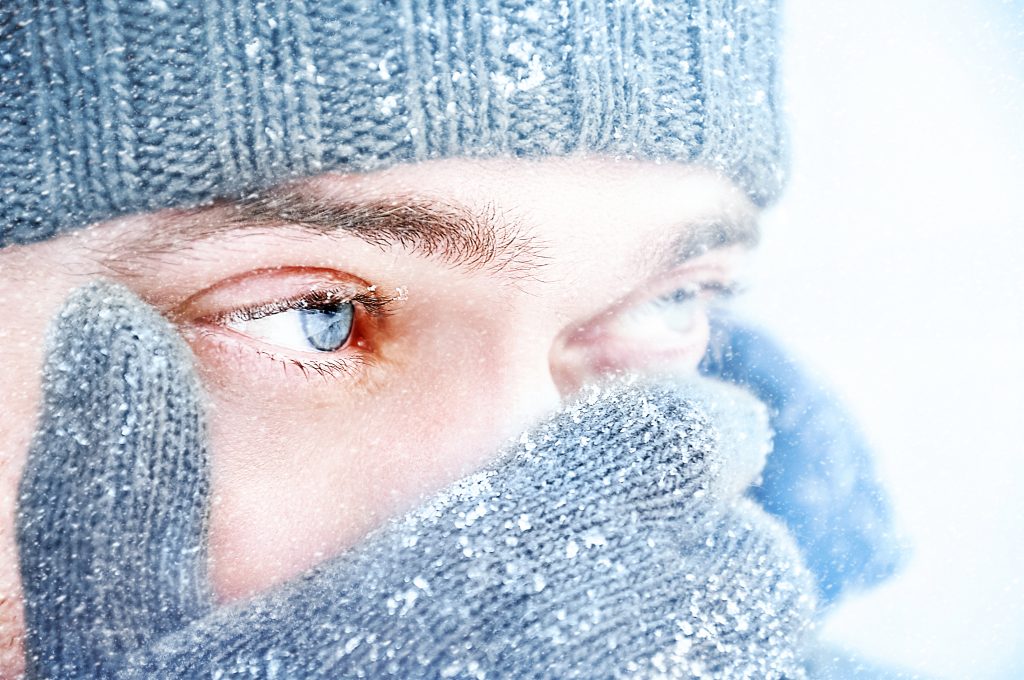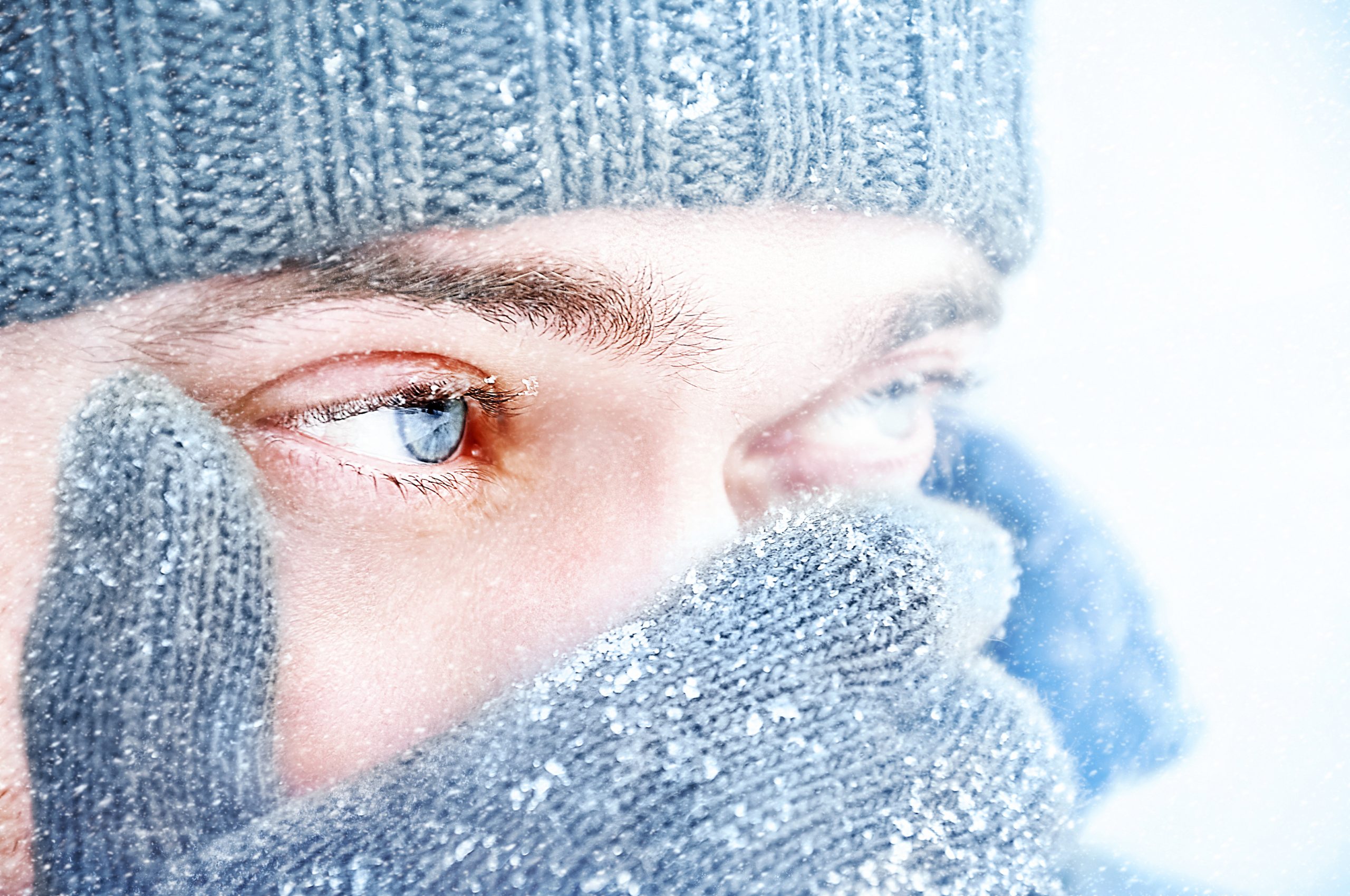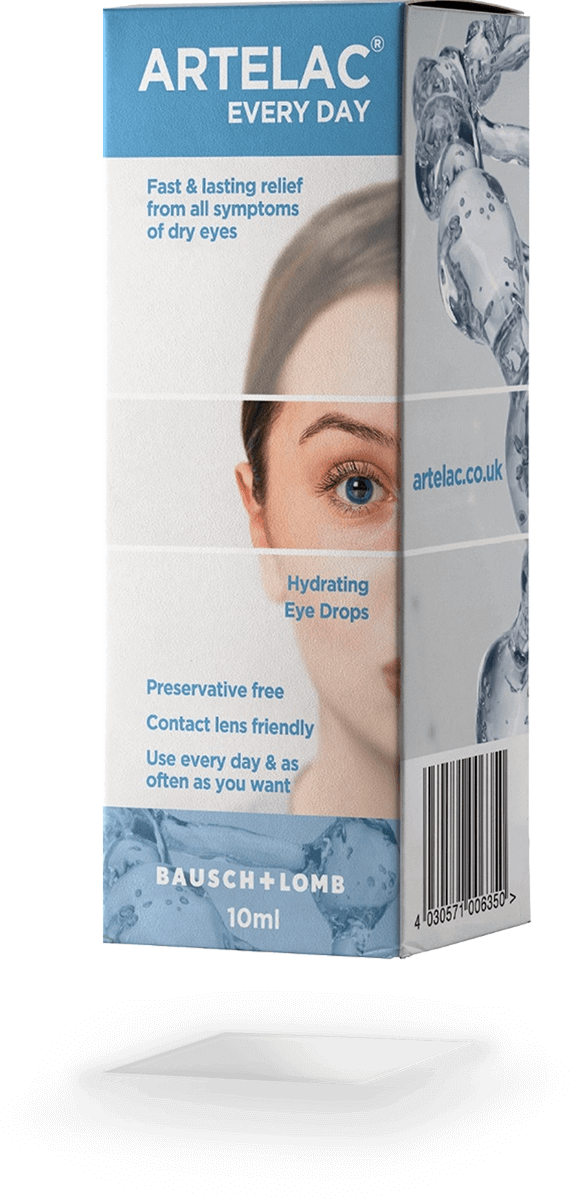We all know that cold, harsh winter weather can play havoc with our skin. However while we are aware that our hands and lips are more susceptible to becoming dry and cracked, many people who experience eye discomfort may not realise that the time of year could also be to blame.
Why do we get dry eyes in winter?
Often when your eyes feel gritty, sore and tired and our vision slightly blurs, it could be because you are experiencing Dry Eye Syndrome. While there are many reasons why this could be happening, exposure to the winter weather can be one of them.
Dry eye occurs when we don’t have enough tears to lubricate the eye’s surface, usually because tears are evaporating too quickly or because we are not producing enough tears.1

During the winter months, exposure to cold, dry air and wind can also cause your eyes to dry out. A common way to tell if your eyes are impacted by the winter weather is if you notice them being more watery or teary than usual. This occurs due to your eyes overproducing tears in order to keep your eyes hydrated.
However, if you think your eyes are more protected indoors be aware that central heating can also sap moisture from eyes. This is because heat causes water in the air indoors to evaporate, creating a dry environment which impacts the moisture in our eyes.2
How to prevent dry eyes in the winter
While the effects of dry eyes can be felt both indoors and outside during the winter months, you don’t need to take extreme measures in order to maintain comfortable and well hydrated eyes. There are several actions you can take to ease discomfort and ensure your eyes are well hydrated throughout winter:
- Manage heating
If you’re popping the heating on at home use a humidifier to ensure there is enough moisture in the air to prevent your eyes from drying out.3 It is also important to ensure you’re not blasting the heating in your car directly into your face, as this can make your tears evaporate faster than usual. Instead direct vents towards your body.
- Protect against the elements
When you know you’re going to be venturing outside to battle the wind and icy air, take the necessary precautions to protect your eyes. This could involve wearing a wide brimmed hat and sunglasses to stop the wind and any dust particles from getting into your eyes. If you enjoy winter sports, make sure you wear suitable goggles.4
- Add some moisture
One of the simplest and most effective ways to alleviate symptoms of dry eye is by topping up moisture levels. Lubricating eye drops work well at mimicking tears, and ensuring you stay well hydrated through drinking enough fluid – six to eight glasses a day5 – will also help to keep eyes moisturised.
- Take your vitamins
Having a well-balanced diet is essential for our overall health, however there are some nutrients that work wonders for the eyes. Omega-3 fatty acids have been linked to alleviating symptoms of dry eye by improving the eye’s oil film6 so make sure to get plenty in your diet through foods such as fatty fish and walnuts or topping up with a supplement.
- Limit screen time
When it’s cold outside it is tempting to stay inside watching a film or using a computer, however looking at a screen for a prolonged period of a time can bring on dry eyes. This is because when we look at screens we are inclined to blink less through concentration which makes it easier for our tears to evaporate. Therefore, if you are looking at screens, make sure to adopt the 20-20-20 rule, looking at something 20 feet away for 20 seconds every 20 minutes4.
References
- Mayo Clinic: Dry Eyes. Available online at: https://www.mayoclinic.org/diseases-conditions/dry-eyes/symptoms-causes/syc-20371863 Accessed on: March 2020
- Johnny L Gayton, 2009. Etiology, prevalence, and treatment of dry eye disease. NCBI, [e-journal] 3, pp. 405-412 https://www.ncbi.nlm.nih.gov/pmc/articles/PMC2720680/
- WebMD: Dry Eye Syndrome Treatment. Available online at: https://www.webmd.com/eye-health/dry-eye-syndrome-treatment Accessed on: February 2020
- Premier Eye Doctor: 8 Tips to beat winter dry eyes. Available online at: https://www.premiereyedoctor.com/8-tips-to-beat-winter-dry-eyes/ Accessed on: February 2020
- NHS: Water, drinks and your health. Available online at: https://www.nhs.uk/live-well/eat-well/water-drinks-nutrition/ Accessed on: November 2019
- Jesús Tellez-Vazquez, 2016. Omega-3 fatty acid supplementation improves dry eye symptoms in patients with glaucoma: results of a prospective multicenter study. NCBI, [e-journal] 1, pp. 617–626 https://www.ncbi.nlm.nih.gov/pmc/articles/PMC4827597/

